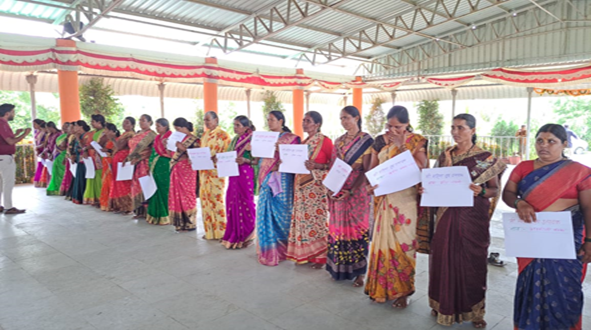
The numbers tell the story of the many milestones the Trust Dairy team achieved! They trained 1525 dairy farmers from 89 villages on Good Dairy Practices. The training programs covered a wide spectrum of topics, including 1447 sessions on farm management and loose housing, 1140 on nutrition management and 900 sessions on disease management.
They also included specific outreach to women through 160 one-to-one sessions and popular training programs focused on dairy farm management and women intended to empower women dairy farmers.

